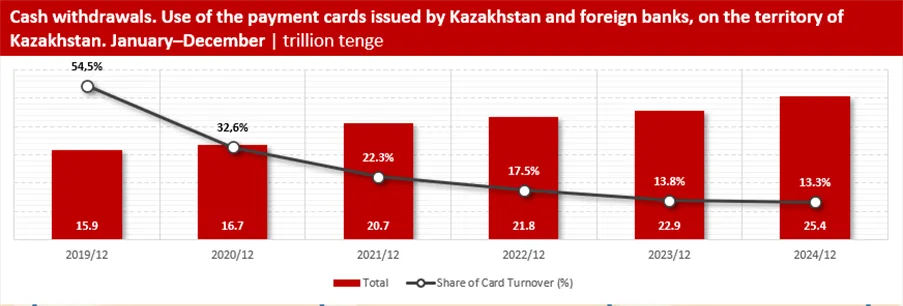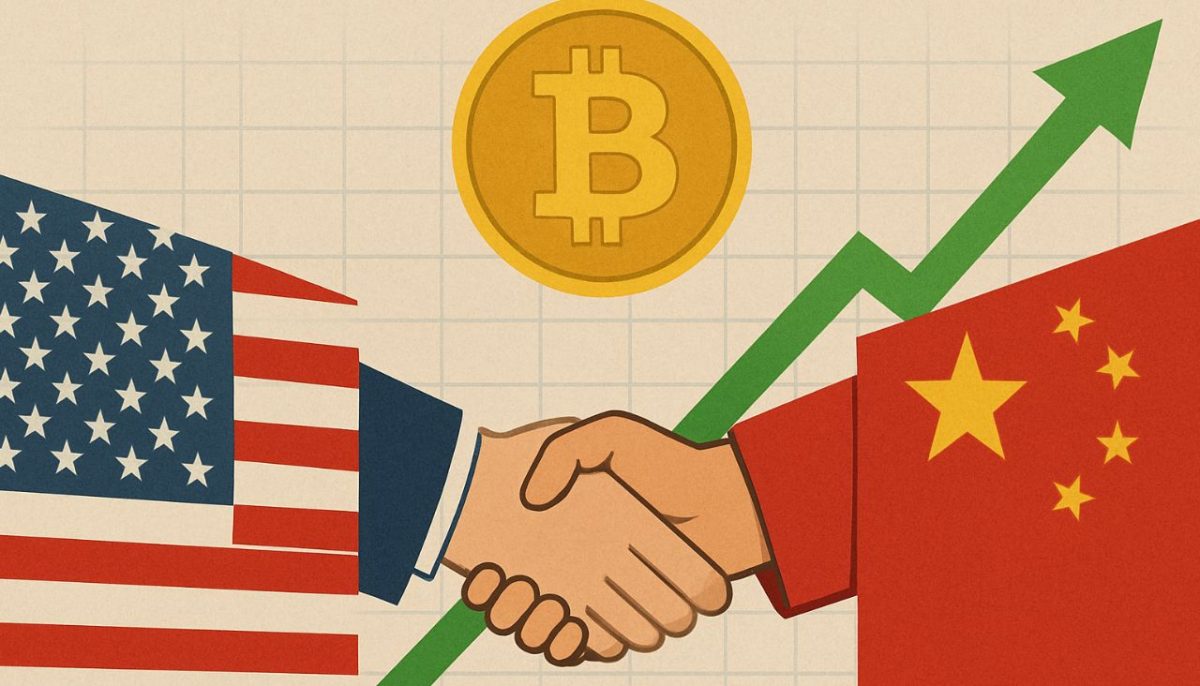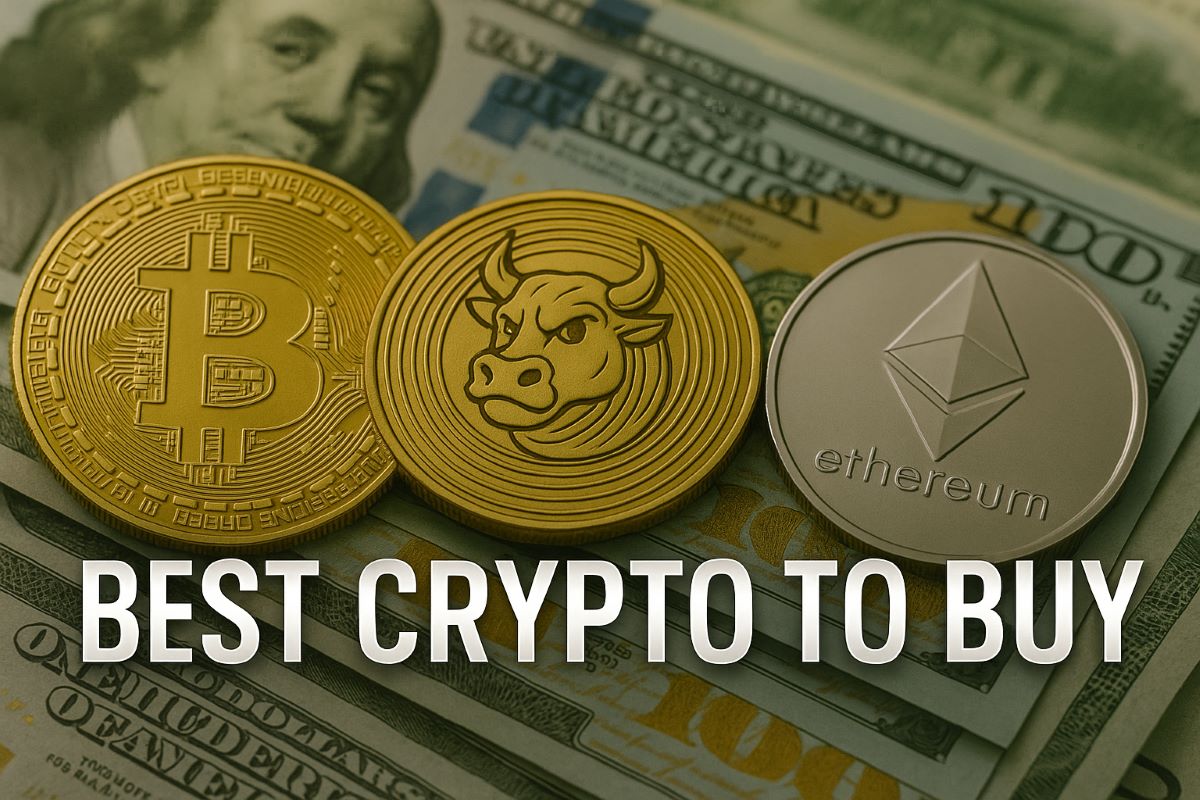Cashless payments have soared in Kazakhstan over the past year, accounting for over 80% of all payments in the country, a report by the central bank reveals.
As of March 1, Kazakhs held 81 million payment cards, with debit cards dominating the market. In February, these cards were used to make payments worth 15.4 trillion tenge ($29.7 billion), a 21% increase year-over-year. The number of transactions shot up 13.7% to one billion, according to the report by the National Bank of the Republic of Kazakhstan (NBRK).
The report echoes previous findings by the central bank and other financial industry experts, pointing to accelerating growth in cashless payments in the Central Asian nation.
In one such report, the NBRK revealed that cashless payments grew their share to 85% last year, with over 70% of Kazakhs now using online banking, a 460% rise in the past five years.
The latest report reiterates this growth, revealing that Internet and mobile banking account for four in five of all non-cash transactions and nearly 90% of the volume. POS terminals were the other major avenue.
However, while cashless payment methods have grown consistently, Kazakhs are withdrawing more cash than ever from ATMs. In 2024, they withdrew 25.4 trillion tenge ($50 billion), 11% more than in 2023. This was after 5% growth in each of the previous two years. Over the past five years, cash withdrawals have surged 60%.
 Source: Ranking.kz
Source: Ranking.kzLocal experts say that increasing taxes and a faltering economy could hinder the consistent growth of digital payments, with more people turning to cash to evade higher transaction charges. It could also lead to more small businesses engaging in informal activities, which favor cash over digital payments.
The impending launch of the country’s central bank digital currency (CBDC) could reshape the dynamics in digital payments. The NBRK is among the more advanced central banks on the CBDC front and has conducted successful digital tenge pilots in the past 18 months. Last year, it struck a deal with China to cooperate on CBDC-powered cross-border remittances, and shortly after, used programmable digital tenge to pay for the construction of a railway to China.
Digital assets have also gained massive popularity in Kazakhstan, with 8% of the population owning a token as of the end of last year, one report revealed. Traders contributed $367,000 in taxes in the first eight months of 2024, with block reward miners and mining pool operators remitting $10.4 million in the same period.
Vietnam eyes payment tokenization to boost adoption
In Vietnam, the country’s primary payments infrastructure provider plans on integrating payment tokenization to protect consumers and boost uptake.
The National Payment Corporation of Vietnam (NAPAS) has announced a new partnership with IDEMIA Secure Transaction (IST) to grow digital payments in the country. NAPAS is the country’s electronic clearing service provider, the majority owned by the central bank alongside the country’s commercial lenders.
Under the new partnership, NAPAS will integrate IST’s digital card solutions, including payment card tokenization, to boost Vietnam’s contactless payments.
IST’s token platform allows card issuers to replace sensitive card information with a token, which consumers can then use to make payments securely.
Card tokenization is becoming critical in the payments space, with card fraud projected to hit $43 billion by 2026. Major card issuers are tokenizing their cards to protect consumers, with Mastercard (NASDAQ: MA) reporting that 30% of its global transactions last year were tokenized. Visa says it has issued over 10 billion tokens over the past decade.
In Vietnam, the new partnership will foster wider adoption of digital payments and protect consumers, commented Isaac Lee, the regional VP for Asia Pacific at IST.
“With QR code payments being commonplace in Vietnam for years now, the community views mobile contactless payments as an innovative evolution paving the way for a more cashless economy,” he stated.
Vietnam’s digital payments revolution received another boost in the past week with the signing of a Memorandum of Understanding (MoU) between the government and China’s largest bank, ICBC. The partnership, which also includes Chinese card issuer UnionPay, enables cross-border QR code payment interoperability. It seeks to provide consumers in both nations with easier and more convenient cross-border payment options.
Watch: Universal Blockchain Asset unlocks the future of payments

















 English (US) ·
English (US) ·